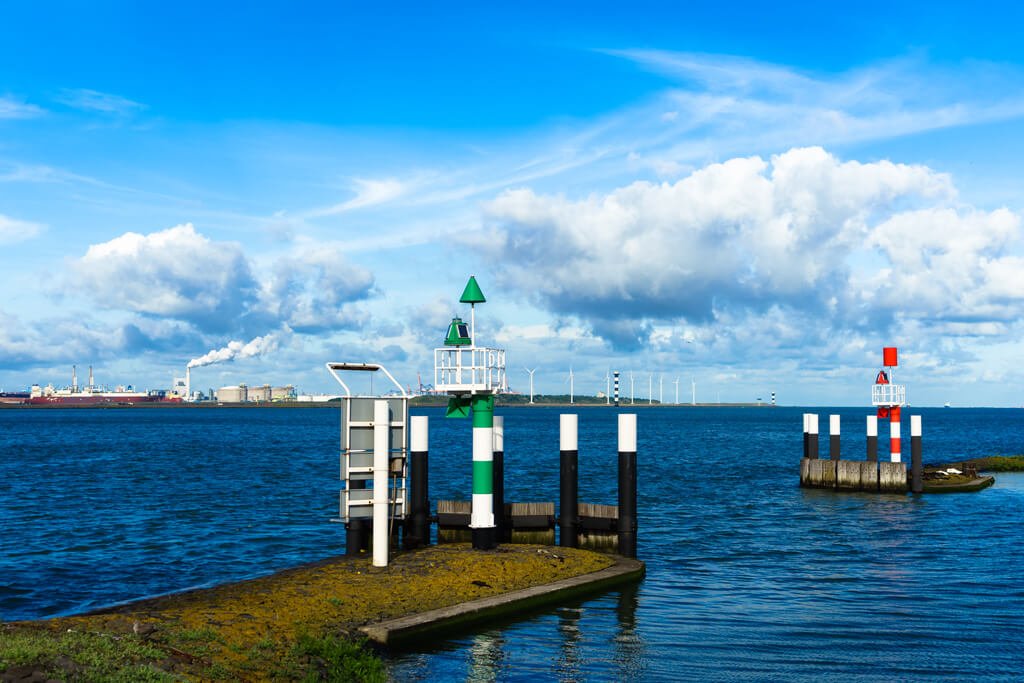
The Port of Rotterdam Authority has collaborated with the Municipality of Rotterdam to launch a field lab for blockchain research.
The Port of Rotterdam Authorities in Netherlands, Europe’s largest shipping port, has introduced its research laboratory ‘BlockLab‘ set up for the development of solutions and applications based on Blockchain technology.
‘BlockLab’ represents a joint project launched in collaboration with the Municipality of Rotterdam, the financier of the initiative, and with the support of the regional development corporation Innovation Quarter.
‘BlockLab’ was officially opened by Port Authority President and CEO Allard Castelein, Rotterdam’s Deputy Mayor for Economic Affairs Maarten Struijvenberg and the Director of InnovationQuarter, Rinke Zonneveld on September 21. On the opening event the founders presented the lab’s team and the first practical applications developed during the start-up phase.
The lab’s team now includes five representatives of the Cambridge Innovation Center in Rotterdam, who develop theoretical blockchain ideas and implement them in real-world environment. ‘BlockLab’ is also planned to become a knowledge center for the regional private sector. For that purpose, the lab’s team will work in tandem with Rotterdam University of Applied Sciences to create a curriculum aimed to attract new talented blockchain researchers.
Blockchain technologies have also proved to be the most promising field of innovation. Designed for facilitating transactions between users by excluding the role of a third party, blockchain technology guarantees all necessary checks and balances and ensures that the transaction is processed automatically.
Maarten Struijvenberg commented on the new lab’s ambitions:
“There’s this huge buzz about ‘blockchain’, but actually, there aren’t that many fully functional applications. We’ll be changing this with BlockLab. This is important, because we need real innovations to launch the next economy. And blockchain can help us realise them.”
By applying blockchain technology to the shipping industry, ‘BlockLab’ intends to establish a finely connected decentralized power network for both ports and consumers, and to ease the flow of cargo at ports.
As Allard Castelein stated:
“This alone makes it very interesting to us. But I’m also thinking of the numerous applications that can be realised within logistics chains thanks to blockchain, allowing us to organise cargo flows more efficiently. This step is seamlessly in line with our ‘smartest port’ ambitions.”
The efficiency of implementing blockchain technologies to the field of cargo flows can be observed in some earlier examples. As, for instance, in March 2017 Denmark-based transport and logistics company Maersk partnered with IBM and in August 2017 IBM has announced a partnership with Singaporean port operator PSA International and Pacific International Lines (PIL).
Apart from the shipping industry, ‘BlockLab’ will also explore other ambitious initiatives, such as energy transition project, allowing citizens in Rotterdam to trade electricity and companies to trade residual heat in the city and the port over a blockchain. One more project presented during the opening event was a blockchain application for stock financing in the port logistics sector, which was developed in partnership with Exact and ABN AMRO.
The earlier examples of blockchain labs opened for further innovations in the field are research labs in Dublin and New York launched by Deloitte and innovation lab in London established by UBS.


